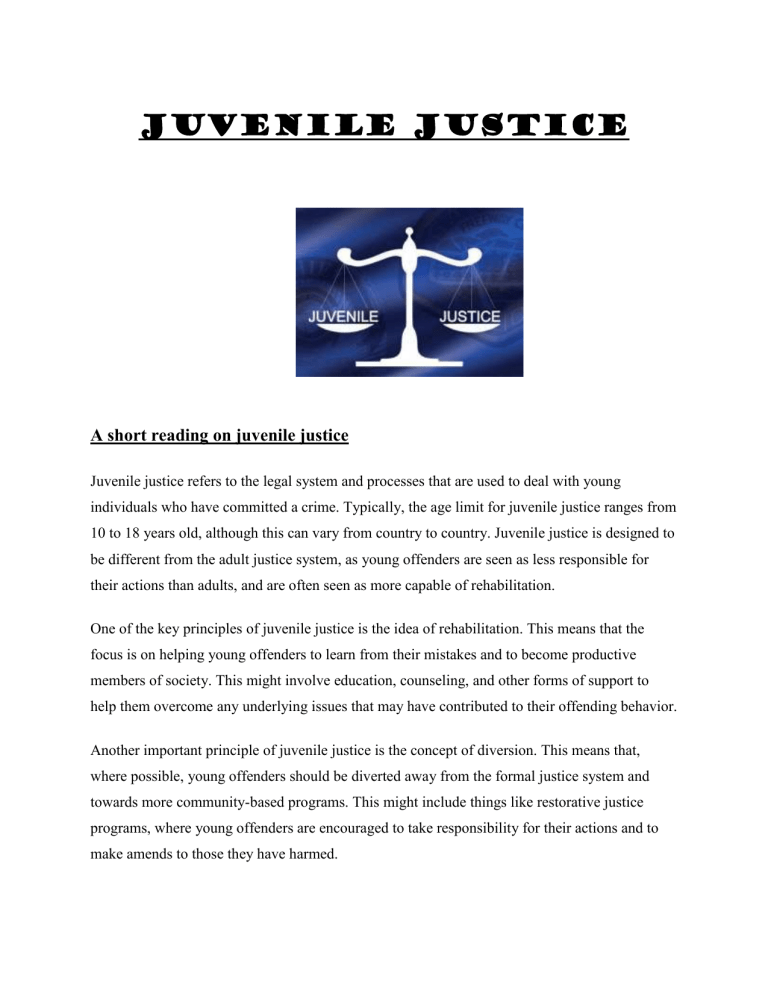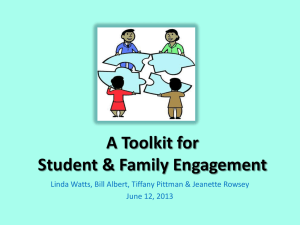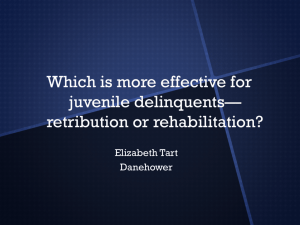
Juvenile Justice A short reading on juvenile justice Juvenile justice refers to the legal system and processes that are used to deal with young individuals who have committed a crime. Typically, the age limit for juvenile justice ranges from 10 to 18 years old, although this can vary from country to country. Juvenile justice is designed to be different from the adult justice system, as young offenders are seen as less responsible for their actions than adults, and are often seen as more capable of rehabilitation. One of the key principles of juvenile justice is the idea of rehabilitation. This means that the focus is on helping young offenders to learn from their mistakes and to become productive members of society. This might involve education, counseling, and other forms of support to help them overcome any underlying issues that may have contributed to their offending behavior. Another important principle of juvenile justice is the concept of diversion. This means that, where possible, young offenders should be diverted away from the formal justice system and towards more community-based programs. This might include things like restorative justice programs, where young offenders are encouraged to take responsibility for their actions and to make amends to those they have harmed. Juvenile justice also places a strong emphasis on the protection of children's rights. This means that young offenders are entitled to the same legal protections as adults, but with additional safeguards to protect their welfare. For example, young offenders may be entitled to legal representation, but they may also be assigned a social worker or other support worker to help them navigate the legal system. In conclusion, juvenile justice is an important area of the legal system that is specifically designed to deal with young offenders. By focusing on rehabilitation, diversion, and the protection of children's rights, juvenile justice aims to help young people who have made mistakes to get back on track and to become productive members of society. Discuss the following questions: 1. What are some of the root causes of juvenile crime? 2. What is the impact of juvenile crime on communities and families? 3. How can parents and guardians be better equipped to prevent their children from engaging in criminal activities? 4. How does the juvenile justice system differ from the adult justice system? 5. Is it appropriate to try juveniles as adults in certain cases? 6. What are some effective strategies for preventing juvenile crime? 7. How can we support the rehabilitation and reintegration of juvenile offenders back into society? 8. How do socioeconomic factors, such as poverty and lack of access to education, contribute to juvenile crime rates? 9. How can we address the issue of racial and ethnic disparities in the juvenile justice system?

